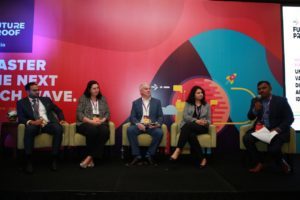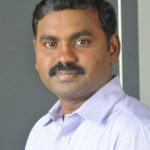CriticalAsset to unveil building maintenance automation software at AHR Expo
LAS VEGAS, Nevada, 31 January 2022: CriticalAsset, Inc. (exhibitor booth N11531), announced it will be unveiling its new flagship facilities management platform, CriticalAsset, on Jan 31 at the AHR Expo in Las Vegas. Making the announcement through a Press release, the company also spoke of USD 1.2MM in funding from Tamarisc VC, one of the country’s leading PropTech investors.
CriticalAsset said the platform is a beautiful software that simplifies facilities management, service, maintenance and documentation; lowers operating costs; and improves a building’s environmental footprint. It’s also the first software to offer a truly interactive digital twin, closing the gap between construction handoffs and building stakeholders, the company claimed.
The platform is a next-generation, mobile-first CMMS, which includes a suite of smart features, including:
- Smart Interactive Floorplans, which converts paper plans and assets into interactive digital documents
- Smart Electrical Panels, in which panel schedules, fed-from, fed-to and affected areas will be completely digital
- Smart Maintenance Scheduling, which automates service and maintenance scheduling
- Smart Work Orders, in which work orders with all key asset data can be created effortlessly by anyone and automatically shared with facilities teams, field technicians and others
- Smart Document Storage, in which all building documents, pictures and plans are securely stored in one place and instantly accessible 24/7.
According to the company, it is the first platform to incorporate AI into all critical aspects of facilities management. The platform solves some of the biggest problems facing virtually every building stakeholder, including facility managers, technicians, contractors, engineers and building owners, the company said.
Building information is scattered all over the place, is difficult to find and is inconsistent. Facilities teams still depend on messy plan rooms, paper notes, complicated spreadsheets, incompatible software apps and risky guesswork, and key knowledge often lives in one person’s head, creating single points of failure, the company pointed out.
Without automation, facilities teams are reactive versus proactive, which takes extra time, results in more asset breakdowns, increases operational costs and creates unnecessary safety risks, while worsening their environmental impact, the company pointed out.
Covid forced many facility managers with institutional knowledge into early retirement, leaving building and property stakeholders with knowledge gaps, creating new risks.
The CriticalAsset platform, the company said, solves all these problems with a single platform for facilities managers and all building stakeholders, offering instant, 24×7 remote access to all building information and tools needed to keep buildings healthy and operational.
“CriticalAsset makes it effortless for facilities managers, contractors and commercial property stakeholders to run their buildings remotely,” said Stewart Padveen, CEO, CriticalAsset. “It lowers operational costs and improves the safety of all occupants in buildings and facilities. There is nothing that compares to CriticalAsset’s simplicity.”
LightAir says subscription strategy is yielding results
STOCKHOLM, Sweden, 12 June 2021: LightAir said its strategic focus on sales of air purification to offices and schools in Sweden is continuing to yield results. The LightAir Health+ offer provides clean, virus-free air and is offered in Sweden primarily as a subscription service, it said, adding that the number of subscriptions is growing continuously, rising from about 60, last summer, and soon likely to exceed 300.
The positive market reception in Sweden is exemplified by how Enskilda Gymnasiet – an independent secondary school in operation for over 100 years – is now expanding its two subscriptions to 30, LightAir said. The school carried out a six-month evaluation, which documented how individuals with asthma and allergies experienced relief from problems and that other students and teachers experienced improved air quality, LightAir said. Evaluation comments mentioned reduced fatigue, improved concentration and less drowsiness, it added.
“We are located in central Stockholm and are aware that we operate in an environment that is particularly exposed to traffic pollution,” said Jonas Persson, Project Manager, Enskilda Gymnasiet. “It’s important that students can stay healthy, cope with the school day and don’t get fatigued by bad air. It’s especially important that they are alert when final exams roll around. Students with pollen allergies are prone to tire easily and perform poorly.”
According to LightAir, Enskilda Gymnasiet is now installing a total air purification capacity of over 20,000 cubic metres per hour, along with a corresponding virus inhibitor capacity. Subsequent to the sale of the purifiers, the service will be delivered in the form of a three-year subscription, LightAir said.
According to LightAir, its Health+ subscription offer is the most comprehensive service offer available and was established in the Swedish domestic market in 2020. The offer has since been awarded the International Facility Management Association’s Nordic Innovation Prize, not least since it has the distinction of being able to destroy viruses while they’re still airborne, the company said.
“More and more businesses and organizations are opening their eyes to the challenges of indoor air,” said Joakim Hansson, Business Area Manager, LightAir. “This is also shown concretely by how we expanded our subscription base from 5 to 60 last summer, and from 60 to 160 by year end. This summer we have high hopes of reaching our goal of 300 Swedish subscriptions.”
Added Lars Liljeholm, CEO, LightAir: “We see that our strategic plan is promising and starting to bear fruit, while we have a long way to go with stimulating challenges ahead of us. We will become increasingly better at utilizing the competitive advantages we have in the nascent corporate market, not least in terms of purification efficiency and noise levels, as well as with an attractive and trouble-free subscription offer. Professional solutions will be the engine of our future growth. Through an increasingly successful domestic market, we are laying the foundation for establishment in selected international markets.
“We are in the middle of the demanding – but enjoyable – work of building a leading position in the commercial segment. Initially, the new strategy will affect sales when we change our revenue model, but in the long run, this will be crucial for the company and value creation for our owners. With that said, the consumer market will still be an important part of the future LightAir we are now building, which is why we have also recruited cutting-edge expertise and are continuously developing our international ventures and e-commerce.”
Facilio-led conference highlights challenges related to digitalisation in FM
The challenge faced by FM companies after having adopted digitalisation, in an attempt to establish measurable value and return on investments (ROI) was one of the key points of a panel discussion during Future Proof, a conference Dubai-based Facilio hosted on March 14 at the Palace Down Town in Dubai.
FM professionals in the region attended the conference. The panelists in the discussion included Fahad Mohamed, Technical Head FM, Deyaar Properties; Andrea Deutschbein, Director FM, EMAAR Malls Group; Stephen Hayes, Head of Facilities and Engineering (MENA), Marriott International and Sangeetha B, Deputy CEO, Al Fajer Facilities Management.

L to R: Prabhu Ramachandran, Founder and CEO, Facilio; Sangeetha B, Deputy CEO, Al Fajer Facilities Management; Stephen Hayes, Head of Facilities and Engineering (MENA); Andrea Deutschbein, Director FM, EMAAR Malls Group, Fahad Mohamed, Technical Head FM, Deyaar Properties
While moderating the discussion, Prabhu Ramachandran, Founder and CEO, Facilio, said: “Today, there is disparity, where few companies are highly digitised, while others are still on paper.” The ultimate digitalisation for real-estate, he said, is when you are able to monitor what’s happening in your building while being placed anywhere in the world.
Sharing her experience on how Al Fajer FM has embraced digitalisation, Sangeetha, said, “Technology has a large part to play in every organisation, and it also a part of our strategy.” Embracing technology, she added, enables FM companies to offer a comprehensive range of solutions. However, one challenge faced is that technology is not being readily accepted by clients as they don’t always see the value and are just looking at the cost factor, she added. “What needs to be understood,” she added, “is the ROI will come after six months to a year, post the adoption of technology.”

Prabhu Ramachandran, Founder and CEO, Facilio
Sharing his experience, Hayes said: “We started adopting technology around 16 to 17 years ago and over the years.” We had all the activities in a single tool and would do quarterly reports with real-time reporting, he said. Highlighting the present situation on how the companies use dashboards to give cue into each of the properties throughout the world, he added, “Today, I can click into the property and drill down into the technician working on each property.” For the last three years, he said, we have got into measuring and using QR codes, Wi-Fi and real-time data, which enables us to monitor 250 properties across the Middle East region.
While the overall sentiment on the adoption of technology was positive, Mohamed highlighted that the main challenge was getting the buy-in from stakeholders. “There is a lot of technology available in the market; however, the challenge is in proving to the customer that it will be an added value,” he said. Elaborating, Sangeetha also pointed to a missing link in the adoption of technology in FM and said: “FM is a strategic player; however, what’s missing is that the client has to understand that adopting technology will be a value-add.” Echoing the thought was Deutschbein. She said: “FM is a big player, from both the client’s side and the service provider’s side.” The cost, she said, is always going to be a factor; however, we cannot cost cut for the sake of it, and standards cannot be compromised on.”
Pointing to personal experience, Mohamed added that in the year 2013, the company started off by connecting buildings to a system, which was remarkable. Utilising it, he said, helped remove BMS operators. The site, he added, is remotely monitored. As a result, he said, it also led to data collection. As if echoing Mohamed, Sangeetha said: “The adoption of technology has shifted focus to data collection, and I cannot stress enough on the importance of collecting data.” Elaborating on how it helps with any kind of analysis, she said, “Data helps in improving our services and will help study the ROI.” Elaborating on how Marriott International has been outsourcing the technology within the scope of FM to different teams, Hayes said, “Even our sub-contractors make use of technology, and we train them on how to use the tool.”


